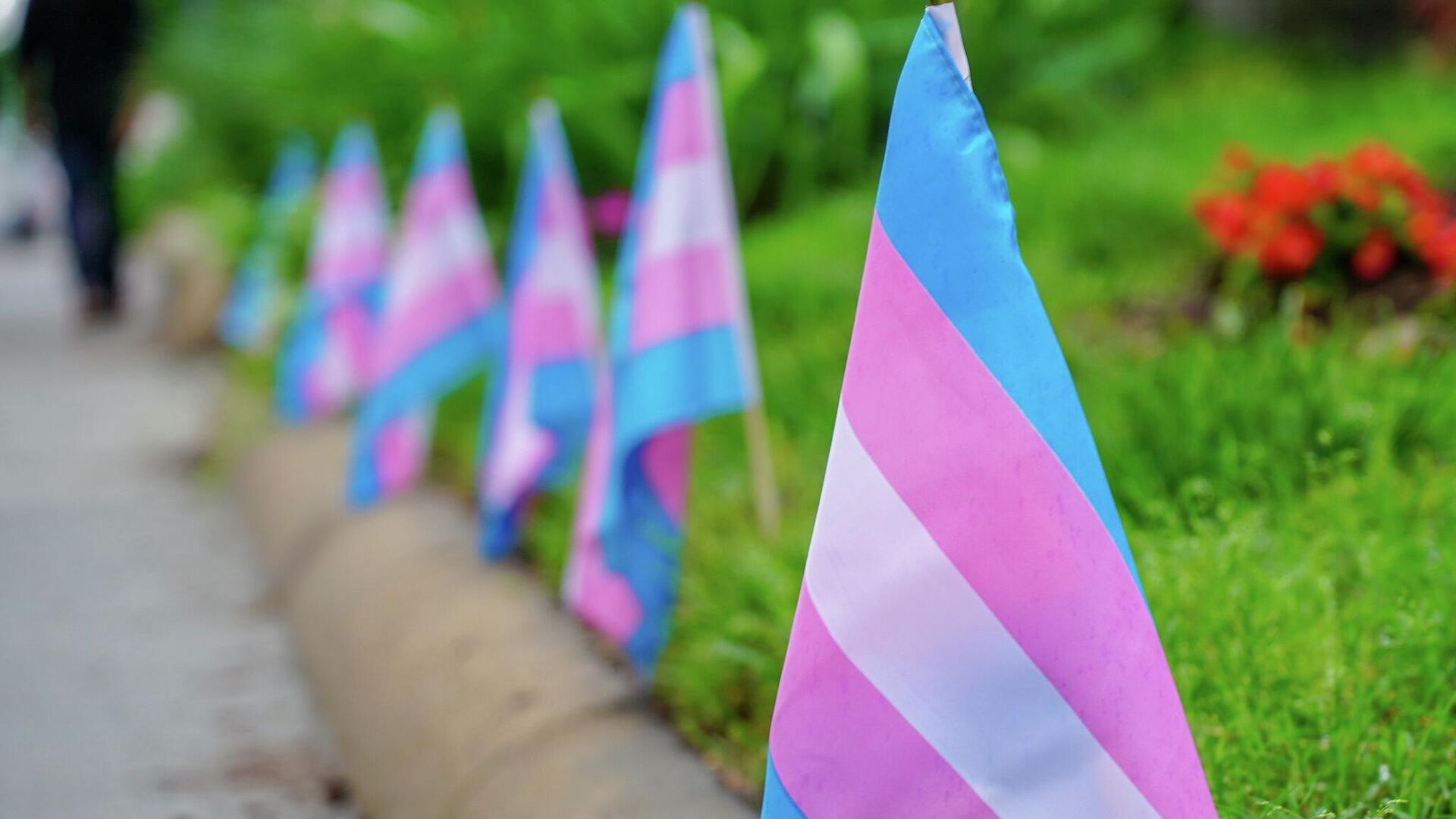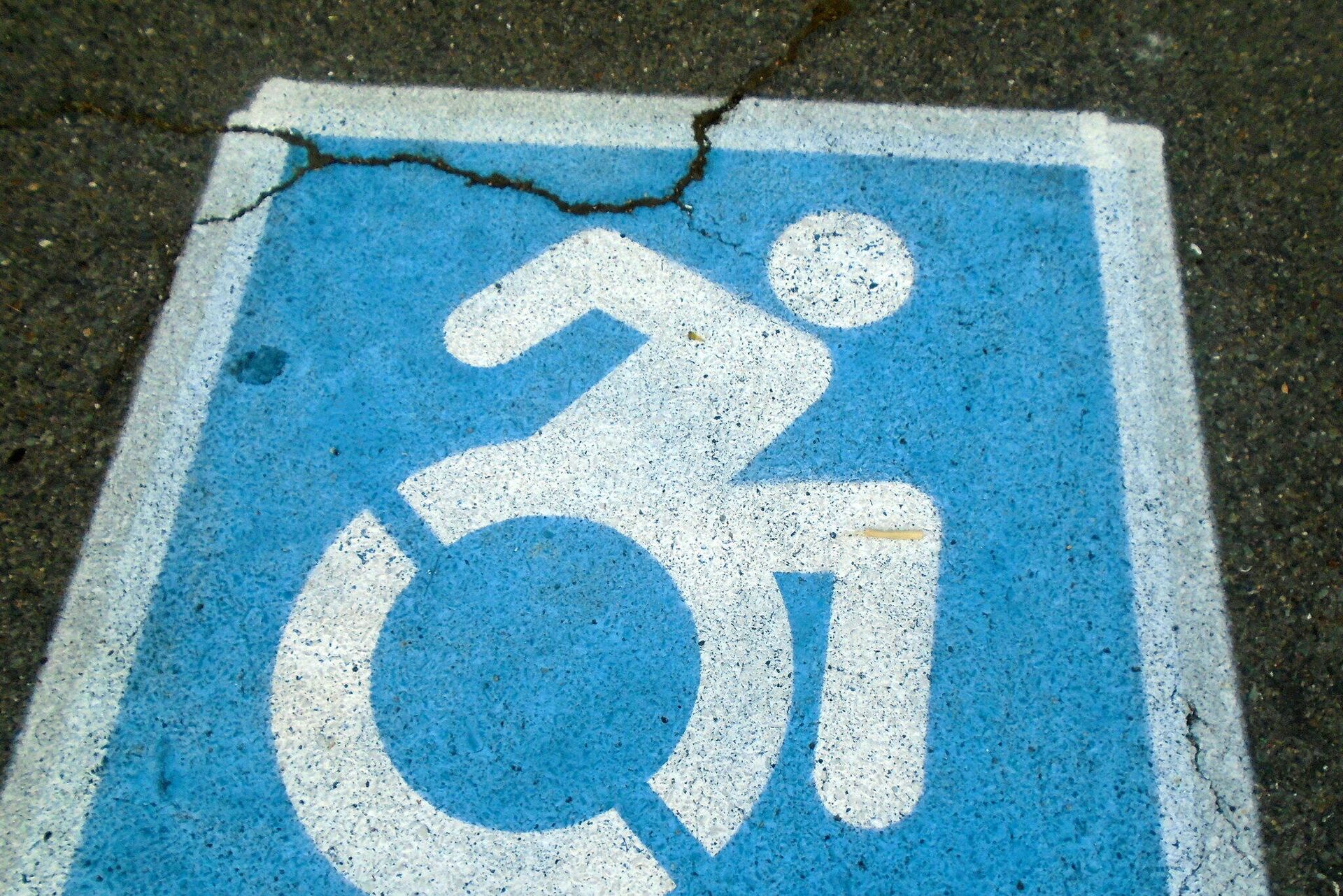https://sputnikglobe.com/20220816/us-federal-appeals-court-rules-transgender-people-protected-by-americans-with-disabilities-act-1099668186.html
US Federal Appeals Court Rules Transgender People Protected by Americans With Disabilities Act
US Federal Appeals Court Rules Transgender People Protected by Americans With Disabilities Act
Sputnik International
Hundreds of bills restricting the rights of LGBTQ people have been introduced in US state legislatures this year, many of which have since become law... 16.08.2022, Sputnik International
2022-08-16T18:32+0000
2022-08-16T18:32+0000
2022-08-16T18:32+0000
americas
us
transgender
disability rights
lgbtq
jail
https://cdn1.img.sputnikglobe.com/img/07e6/04/08/1094602024_0:0:2049:1153_1920x0_80_0_0_a5ae11964e49f75a3c4232df99500d47.jpg
A federal appeals court has ruled that many transgender people are protected by the Americans With Disabilities Act (ADA), updating the legal interpretation of the law to be in line with subsequent advances in psychiatric medicine.Kesha Williams, a transgender woman, was imprisoned for six months in Virginia’s Fairfax County Adult Detention Center in 2018 and 2019. While incarcerated, she was placed in the men’s side of the facility, denied access to her hormone replacement therapy (HRT) medications for a period of time, and treated like a man, despite her pleadings to be treated like a woman. This harassment, Williams later argued in a court case against the prison staff, had violated her rights under the ADA, the Rehabilitation Act, the US Constitution, and state common law. A lower court initially threw out her arguments, siding with the sheriff and ruling that she was not protected by the ADA’s accommodation requirements for disabled people, but on Tuesday, Williams won her case on appeal.ADA Originally Excluded Trans PeopleWhen the ADA was passed in 1990, it included a list of conditions that were not protected by the law, including “transvestism, transsexualism, pedophilia, exhibitionism, voyeurism, gender identity disorders not resulting from physical impairments, [and] other sexual behavior disorders,” as well as “compulsive gambling, kleptomania … pyromania; or … psychoactive substance use disorders resulting from current illegal use of drugs.”In its ruling, the court notes it has not been tasked with adding new conditions to the ADA’s lists - that is Congress’ job - but also notes that when the ADA was revised in 2008, Congress explicitly directed the courts that the law’s definition of “disability” “shall be construed in favor of broad coverage of individuals under this chapter, to the maximum extent permitted by the [ADA’s] terms.” It also directed the courts to construe the ADA’s exclusions narrowly.‘Meaningful Difference’ Between Old, New DiagnosesIn 2013, the American Psychiatric Association (APA), which maintains the Diagnostic and Statistical Manual of Mental Disorders (DSM) used for codifying and diagnosing mental illnesses, removed GID from the fifth edition of the manual (DSM-5), and added a new diagnosis of “gender dysphoria.”“The very fact of revision suggests a meaningful difference, and the contrast between the definitions of the two terms - gender identity disorder and gender dysphoria - confirms that these revisions are not just semantic,” the court continues.“Put simply, while the older DSM pathologized the very existence of transgender people, the recent DSM-5’s diagnosis of gender dysphoria takes as a given that being transgender is not a disability and affirms that a transgender person’s medical needs are just as deserving of treatment and protection as anyone else’s,” The court wrote, adding that “nothing in the ADA, then or now, compels the conclusion that gender dysphoria constitutes a ‘gender identity disorder’ excluded from ADA protection.”However, the appeals court threw out her other two arguments: that the sheriff had exhibited gross negligence of her care in the jail and that she had suffered physical impairment, which would also have been an ADA violation.LGBTQ Protections Expand, ContractThe ADA includes anti-discriminations protections broadly similar to those in the Civil Rights Act of 1964, which banned discrimination based on race, religion, sex, national origin, and other characteristics. However, the ADA also requires employers to provide disabled employees with reasonable accommodations and requires public accommodations to guarantee similar accessibility.However, efforts to explicitly codify anti-discrimination protections for LGBTQ people have stumbled amid Republican intransigence in Congress. When Biden took office in January 2021, he pledged to pass the Equality Act, which would add sexuality and gender identity to the 1964 Civil Rights Act, within his first 100 days in office. While it quickly passed the Democrat-majority House, it has stalled in the Senate, where a GOP filibuster has blocked its passage, even though Democrats have a majority of votes for the bill.Biden has faced mounting pressure in the months since, as the filibuster is used to block more and more of his agenda, to use his power to remove the filibuster rule. So far, he has hesitated, over fears, it could backfire once Democrats are no longer the majority.Meanwhile, conservative state legislatures have passed one discriminatory measure after another in recent years, with more than 200 such bills being introduced in 2022 alone. The majority of these acts have targeted trans people’s rights, and the majority of those have focused on trans children and youth, who conservatives allege are being forced into transitioning against their will by adults possessed by what they call “gender ideology” or “wokeness.”The legal attacks have been paralleled by physical attacks, as Republicans build support for their proposed policies by deriding trans people as “groomers” no different than pedophiles. At least 25 trans people have been murdered in the US this year, many in brutal ways, and far-right militia groups have staged attacks on LGBTQ-related events such as Pride celebrations and drag shows. Last year, the US saw an all-time high of 57 known murders of trans people.
americas
Sputnik International
feedback@sputniknews.com
+74956456601
MIA „Rossiya Segodnya“
2022
Sputnik International
feedback@sputniknews.com
+74956456601
MIA „Rossiya Segodnya“
News
en_EN
Sputnik International
feedback@sputniknews.com
+74956456601
MIA „Rossiya Segodnya“
Sputnik International
feedback@sputniknews.com
+74956456601
MIA „Rossiya Segodnya“
us, transgender, disability rights, lgbtq, jail
us, transgender, disability rights, lgbtq, jail
US Federal Appeals Court Rules Transgender People Protected by Americans With Disabilities Act
Hundreds of bills restricting the rights of LGBTQ people have been introduced in US state legislatures this year, many of which have since become law, especially those targeting transgender adults, youth, and athletes. US President Joe Biden has pledged to pass the federal Equality Act, which has stalled in the Senate for more than a year.
A federal appeals court has ruled that many transgender people are protected by the Americans With Disabilities Act (ADA), updating the legal interpretation of the law to be in line with subsequent advances in psychiatric medicine.
According to the US Court of Appeals for the Fourth Circuit in Richmond, Virginia, the ADA’s list of mental illnesses excluded from its protections can no longer be used to deny transgender people equal access to public facilities or medical care, among numerous other things.
Kesha Williams, a transgender woman, was
imprisoned for six months in Virginia’s Fairfax County Adult Detention Center in 2018 and 2019. While incarcerated, she was placed in the men’s side of the facility, denied access to her hormone replacement therapy (HRT) medications for a period of time, and treated like a man, despite her pleadings to be treated like a woman.
The rules the jail used for placing Williams there derived from a 2018 directive by then-US President Donald Trump's Bureau of Prisons, which reversed a directive by his predecessor, Barack Obama, and ordered prison staff to divide prisoners based purely on their genitals. Under Biden, this rule has been changed back and the BoP's manual for transgender inmates revised.
This harassment, Williams later argued in a court case against the prison staff, had violated her rights under the ADA, the Rehabilitation Act, the US Constitution, and state common law. A lower court initially threw out her arguments, siding with the sheriff and ruling that she was not protected by the ADA’s accommodation requirements for disabled people, but on Tuesday, Williams won her case on appeal.
ADA Originally Excluded Trans People
When the ADA was passed in 1990, it included
a list of conditions that were not protected by the law, including “transvestism, transsexualism, pedophilia, exhibitionism, voyeurism, gender identity disorders not resulting from physical impairments, [and] other sexual behavior disorders,” as well as “compulsive gambling, kleptomania … pyromania; or … psychoactive substance use disorders resulting from current illegal use of drugs.”
At the time, this covered transgender people, whose lives were highly regulated by medical professionals and who, to receive access to transition resources like hormone therapy and surgeries, had to be
diagnosed with the mental illness of “Gender Identity Disorder” (GID).
In its ruling, the court notes it has not been tasked with adding new conditions to the ADA’s lists - that is Congress’ job - but also notes that when the ADA was revised in 2008, Congress explicitly directed the courts that the law’s definition of “disability” “shall be construed in favor of broad coverage of individuals under this chapter, to the maximum extent permitted by the [ADA’s] terms.” It also directed the courts to construe the ADA’s exclusions narrowly.
‘Meaningful Difference’ Between Old, New Diagnoses
In 2013, the American Psychiatric Association (APA), which maintains the Diagnostic and Statistical Manual of Mental Disorders (DSM) used for codifying and diagnosing mental illnesses,
removed GID from the fifth edition of the manual (DSM-5), and added a
new diagnosis of “gender dysphoria.”“The text of the ADA does not define the term ‘gender identity disorders’ and does not mention gender dysphoria at all. Thus, although the ADA specifically lists a number of exclusions from the definition of ‘disability,’ that list does not include gender dysphoria,” the court argued.
“The very fact of revision suggests a meaningful difference, and the contrast between the definitions of the two terms - gender identity disorder and gender dysphoria - confirms that these revisions are not just semantic,” the court continues.
“In sum, the APA’s removal of the ‘gender identity disorder’ diagnosis and the addition of the ‘gender dysphoria’ diagnosis to the DSM-5 reflected a significant shift in medical understanding. The obsolete diagnosis focused solely on cross-gender identification; the modern one on clinically significant distress. The DSM-5 itself emphasizes this distinction, explaining that the gender dysphoria diagnosis ‘focuses on dysphoria as the clinical problem, not identity per se.’”
“Put simply, while the older DSM pathologized the very existence of transgender people, the recent DSM-5’s diagnosis of gender dysphoria takes as a given that being transgender is not a disability and affirms that a transgender person’s medical needs are just as deserving of treatment and protection as anyone else’s,” The court wrote, adding that “nothing in the ADA, then or now, compels the conclusion that gender dysphoria constitutes a ‘gender identity disorder’ excluded from ADA protection.”
“For these reasons, we agree with Williams that, as a matter of statutory construction, gender dysphoria is not a gender identity disorder,” the court stated.
However, the appeals court threw out her other two arguments: that the sheriff had exhibited gross negligence of her care in the jail and that she had suffered physical impairment, which would also have been an ADA violation.
LGBTQ Protections Expand, Contract
The ADA includes anti-discriminations protections broadly similar to those in the Civil Rights Act of 1964, which banned discrimination based on race, religion, sex, national origin, and other characteristics. However, the ADA also requires employers to provide disabled employees with reasonable accommodations and requires public accommodations to guarantee similar accessibility.
In addition to being included in those protections, the 2020 ruling by the US Supreme Court in
Bostock vs. Clayton County found that the sex-based language of Title VII of the 1964 Civil Rights Act extends to sexuality and gender identity as well, since discrimination based on those things is unavoidably discrimination based on sex stereotypes.
However, efforts to explicitly codify anti-discrimination protections for LGBTQ people have stumbled amid Republican intransigence in Congress. When Biden took office in January 2021, he
pledged to pass the Equality Act, which would add sexuality and gender identity to the 1964 Civil Rights Act, within his first 100 days in office. While it quickly passed the Democrat-majority House, it has stalled in the Senate, where a GOP filibuster has blocked its passage, even though Democrats have a majority of votes for the bill.
Biden has faced mounting pressure in the months since, as the filibuster is used to block more and more of his agenda, to use his power to remove the filibuster rule. So far, he has hesitated, over fears, it could backfire once Democrats are no longer the majority.
Meanwhile, conservative state legislatures have passed one discriminatory measure after another in recent years, with
more than 200 such bills being introduced in 2022 alone. The majority of these acts have targeted trans people’s rights, and the majority of those have focused on trans children and youth, who conservatives allege are being forced into transitioning against their will by adults possessed by what they call “gender ideology” or “wokeness.”
Where legislative actions have been blocked, governors have resorted to executive orders, with Texas Governor Greg Abbott ordering the state’s child protective services to investigate parents of trans children for child abuse if they affirm their child’s gender identity, and Florida Governor Ron DeSantis banning the use of Medicaid state-provided health insurance for transition-related care of any kind.
The legal attacks have been paralleled by physical attacks, as Republicans build support for their proposed policies by deriding trans people as “groomers” no different than pedophiles.
At least 25 trans people have been murdered in the US this year, many in brutal ways, and far-right militia groups have
staged attacks on LGBTQ-related events such as Pride celebrations and drag shows. Last year, the US saw an all-time high of 57 known murders of trans people.




